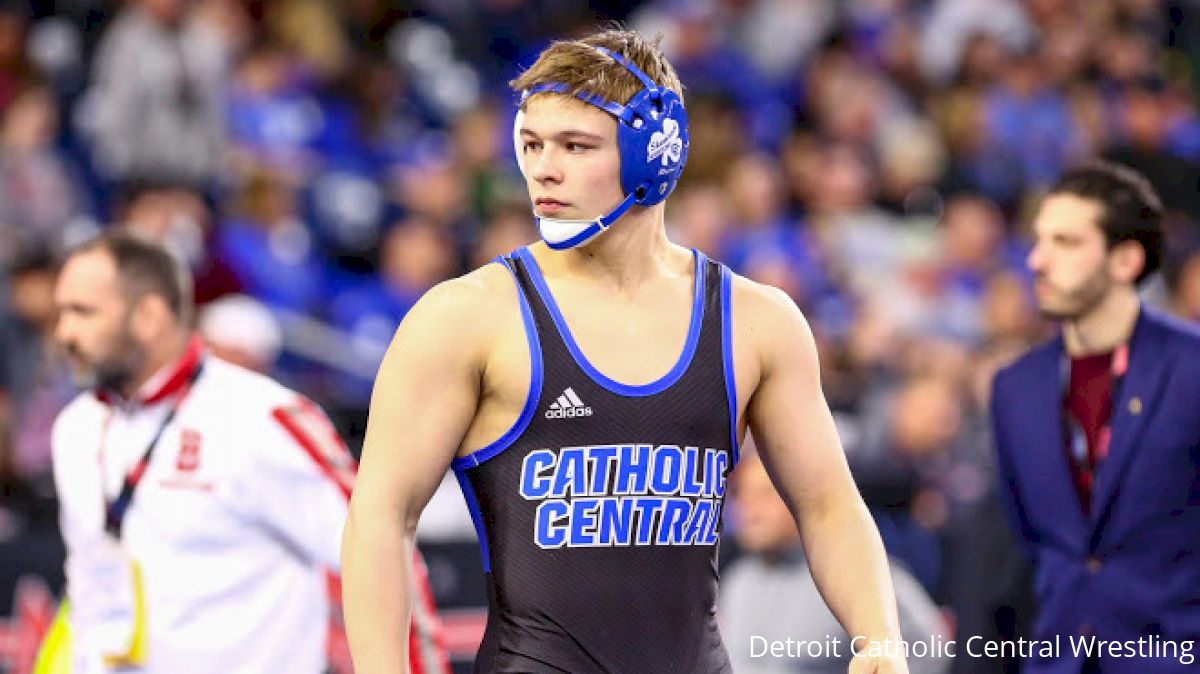Return-To-Mat Protocol For Michigan High School Wrestling
Return-To-Mat Protocol For Michigan High School Wrestling
Michigan high school wrestling is going to look a little bit different this year with COVID-19 changing the rulebook.

Unlock this article, live events, and more with a subscription!
Already a subscriber? Log In
Michigan high school wrestlers must mask up during the coming season — even while competing.
That is the most eye-opening aspect of a 17-page Return To Play document the MSHAA posted on its web site last month soon after announcing the season will begin at roughly its traditional time. Practices start Nov. 16 with the first matches scheduled for Dec. 9.
For more than three months, the state's wrestlers have been testing themselves against some of the nation's best at competitions in places like South Carolina, Indiana and South Dakota. At those events, they were only required to don masks when not competing.
It appears that will be case in most states, including those that border Michigan like Indiana, Ohio, and Wisconsin. However, the face coverings rule also applies to out-of-state teams who travel to Michigan for competition.
The mask requirement was prompted by the Michigan Department of Health's mandate that face coverings must be worn during indoor activities where physical distancing is not possible.
Return to Play regulations further state that face coverings must be made of cloth or approved medical grade fabric/material which covers the nose and mouth and that extra, unused face coverings should be on hand and available in the event a face covering becomes damaged or unusable while competing.
As with other indoor sports, coaches, event staff, officials, media and spectators must wear masks at all times.
The MHSAA is also recommending that wrestlers use a different face covering for each match during a single day of competition and periodically changing face coverings during practice. Wrestlers should also have separate masks to wear when not competing.
Naturally, the mask mandate provoked some strong reactions on social media.
"The sheer stupidity of this is amazing!!," tweeted one wrestling coach from Ohio.
"I would rather have the mask rule and have a season than not," one wrestler posted.
Another Twitter post predicted that "The masks ain't gonna last through a double leg takedown."
“The Council believes it is safer to begin Winter practices on time, and keep athletes in school programs where safety precautions are always in effect,” MHSAA Executive Director Mark Uyl said in a release. “With the vastly different circumstances faced by schools in different regions all over the state, an on-time start still allows schools to decide when they feel most comfortable beginning activity – and allows all of them to slowly ramp up their frequency of activity and numbers of spectators attending competitions."
The MHSAA guidelines also addressed what happens during competition as it pertains to the face coverings requirement.
If a mask comes down, it will be treated the same as if a head gear comes off during a match. The official will verbally inform the wrestler in question to adjust the face covering appropriately. Officials will stop action for the adjustment as soon as action allows or if either wrestler is placed in a dangerous situation.
If a mask comes down during a scoring or pinning situation, action will continue and the mask adjustment will be made at the conclusion of the scoring situation. Wrestlers will be penalized for unsportsmanlike conduct should they purposely pull down an opponents' face covering.
Wrestlers will be allowed to replace damaged or broken masks during a match. As such, coaches are being encouraged to have a supply of clean, unused face coverings at each match.
Coaches may to try find face coverings which can be somehow attached to head gear to limit the times matches have to stopped for masks which have come off.
Another option could be the use of the same face coverings sometimes used to simulate high altitude training like Training Mask 3.0, offered on trainingmask.com, which features a velcro strap. Airflow can even be adjusted.
Other stipulations limiting spectators, number of competitions and number of teams and wrestlers competing in events are being implemented.
Teams will be limited to one competition per week (Monday through Sunday) and wrestlers can only compete in three matches per competition. Only four teams are allowed to compete in the same building at the same time, meaning competitions will be limited to duals, tri-matches and quads.
That also means no individually bracketed tournaments during the regular season such as county and even league tournaments. Conferences larger than four teams will have to use other methods to determine their champions such as the final dual-match standings.
Coaches must remain on their benches during matches and benches will be at least 10 feet from the mat.
The MHSAA will announce team and individual state tournament information at a later date along with where the competitions will take place. Divisions 1 and 2, for example, could be held first before Division 3 and 4 similar to what was done with this season's cross county state meets.
As with fall sports in Michigan, scrimmages are prohibited and, at least to begin the season, attendance will be limited to two spectators per participant.
Regarding practice, coaches are being asked to limit the number of training partners each wrestler and limit the number of wrestlers in the practice room at one time even if that means running split practices.
The MHSAA is also requesting that teams eliminate bonding activities like team dinners and other such gatherings outside of competition and practice.
The full Return to Play document can be found at mhsaa/sports/wrestling.com.
Mark Spezia is a freelance writer based in Lapeer, Michigan. He has written for ESPNW, Flohockey, Flint, Michigan-based My City Magazine, the Detroit Free Press, Hour Detroit Magazine and Troy, Michigan-based Oakland Press. He previously worked for the Flint Journal, Lapeer (Michigan) County Press and Daily Mining Gazette in Houghton, Michigan.